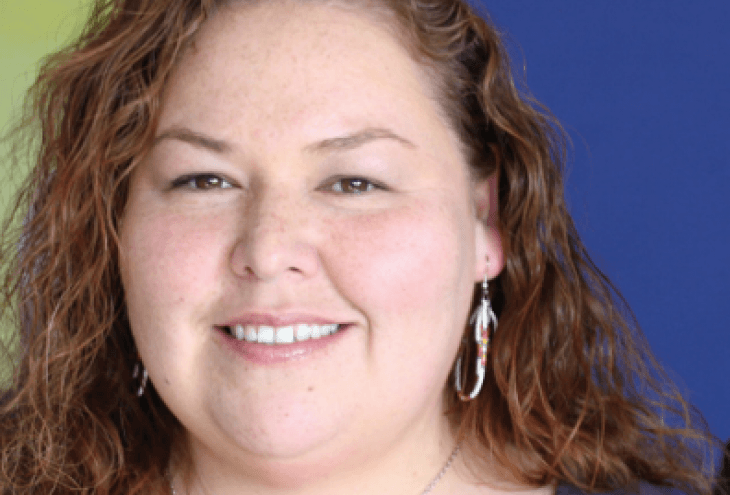Growing up near the ocean mostly in Vallejo, Calif., Amber Finley was fascinated by aquatic life. That love for the sea quickly transformed into a passion for STEM. As early as junior high, math and science became Finley’s focus at school — and her curiosity about biology was strongly encouraged by the adults around her.
“I had many teachers who supported my interest in math and science,” she says. “And my parents always wanted me to do well and supported my academic endeavors.”
When Finley moved to Mandaree, N.D., at 16 years old, she continued to seek out STEM opportunities. There, she joined AISES and met an influential teacher who took her science studies to a new level, helping her explore chemistry and physics.
But despite strong support at home and school, Finley faced many obstacles on the road to a bachelor’s degree. “At first, I chose to attend my tribal community college because it was close to home, and I had recently had my daughter,” she explains. She enrolled at Fort Berthold Community College in New Town, N.D.
After earning associate’s degrees in science and liberal arts, Finley knew she wanted more. But to complete her bachelor’s, she would have to leave her family support system behind.
Committed to furthering her education, Finley attended the University of North Dakota to study fisheries and wildlife biology. The big move was fun at first, but when it soon gave way to homesickness, the American Indian Student Services Center became her home away from home. “If I ran into issues with registration, paying my bills on time, parking, and finding a sitter or even finding a warm meal, the team at American Indian Student Services helped me,” Finley remembers. “It was like having an extended family.”
Finley was also active in AISES, teaming up with her friend Twyla Baker-Demaray to revamp the University of North Dakota’s AISES Chapter.
After graduating, Finley went on to earn her MS in environmental management at the University of San Francisco. Then she returned to North Dakota to pursue her career.
Once back in North Dakota, it became clear that Finley’s college connections would play a powerful role. As Finley puts it, “When people tell you as an undergrad that it’s important to network and get involved in student organizations, they aren’t kidding.”
She soon reconnected with Baker-Demaray, her friend from AISES. Together, they co-founded Northstar Council, a nonprofit in Grand Forks, N.D., dedicated to encouraging Native American students to get into STEM fields.
In 2014, Baker-Demaray left Northstar Council to take a job at the local tribal college, Nueta Hidatsa Sahnish College. Two years later, she enlisted Finley to work on some grant projects at the school, and soon after, Finley accepted a full-time job there.
Today, Finley is the director of research and development at the college. She also serves on the science faculty, as the student senate advisor, and as an AISES advisor. Day to day, her job is split between the science department and the president’s office. But her favorite part of the role is working with students. “I find it very uplifting to work with our next generation of scientists and engineers,” she says.
Finley notes that the development of research departments at tribal colleges like Nueta Hidatsa Sahnish College is the first step to securing the future of research on reservations. She calls it “a step forward in tribal sovereignty, and one desperately needed for our tribe.”
In addition, Finley says, she works with a team of profes - sionals who truly believe in providing quality cultural, academic, and vocational education to the students. “The real impact comes from working with disadvantaged students with stellar potential,” she explains. “We have bright young minds at our tribal colleges, and our programs complement the needs of our communities.”
Finley hopes to eventually obtain her PhD and continue to contribute to Nueta Hidatsa Sahnish College. She sees a great need for more innova - tion in research, STEM education, community development, and tribal nation building.
For young people who want to pursue higher education, Finley says, “Keep moving forward. Resilience is one of the best tools we have, and it’s literally been passed down from generation to generation.”
She also encourages students to get involved with organizations that will support their goals, noting that AISES has played a key role in her own career development. “It’s like being wrapped in a cozy AISES blan - ket of love and support,” she says. “It may sound cliché, but I am a product of AISES.”











